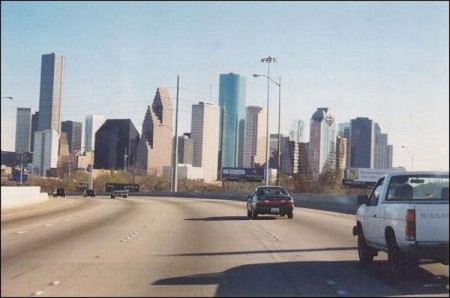New York, long thought to be the top spot in the nation, doesn’t even make the list.
Move over New York. When it comes to shopping, everything’s bigger in Texas. Forbes’ first-ever ranking of the best U.S. cities for shopping takes a look at the real numbers behind what makes retail sparkle in the biggest cities in America.
One look at the top 10 shows that NYC, long thought to be the best city for style, sophistication and putting your pocketbook to work, is nowhere to be found. What? Why? How? The truth is, in deciding what makes a city “best,” it all depends on what you’re looking for.
America’s Top 10 Cities for Shopping
- Houston, TX
- Phoenix, AZ
- Dallas, TX
- Baltimore, MD
- Columbus, OH
- Indianapolis, IN
- Philadelphia, PA
- San Antonio, TX
- Jacksonville, FL
- San Diego, CA
When it comes to shopping, everyone has their own style. Some of us are in-and-out. We know what we want, we know where to find it and we’d like to be on our way, thank-you-very-much. Others are in heaven strolling through well-lit retail centers, window shopping to our heart’s delight, even if there’s nothing we “need.” And some of us are on the hunt for a bargain—if it isn’t on sale, it’s not on our list.
In compiling our list of America’s best cities for shopping, we took the interests of all types to heart to find the urban centers with the best combination of options, ease and affordability.
Of the 525 major shopping centers in the country’s biggest cities, there are nearly 257 million square feet of gross leasable retail area, according to data provided by Esri, a geographic information systems firm that tracks the leasable area of major U.S. shopping centers of more than 225,000 square feet. Of that, nearly a quarter of the retail space (87,879,057 square feet) is in the Lone Star state, more than explaining how three Texan cities landed in our top ten cities for shopping. Like their football and BBQ, Texans take their shopping seriously.
Houston comes in at No. 1 one the list. “Houston might be a big city, and sure you can spend days buying up the shopping malls, but for me the best thing has always been the boutiques that are somehow both 100% Southern and completely chic,” says stylist Kate Barash, a Houston native now living in Los Angeles.
Barash, who describes her own fashion sense as “date night feisty,” shares her two favorite Houston stops for shopping: 310 Rosemont (1965 W. Gray Ave.), where she stocks up jeans from trendy 1921 and Seven For All Mankind. She also scores pieces from Milly and James Perse; and Lot 8 (6127 Kirby Drive), where she finds “the best L.A. designers without the Los Angeles inflated prices.”
If one-stop shopping is more your style than hunting for boutiques in humid Houston, take a drive to Texas’s biggest mall, the Galleria, which boasts 2.5 million square feet of retail pleasure.
At No. 2, Phoenix, Ariz., may be another steamy city for shopping, but its large number of shopping centers and retail stores (over 11,000 according to the BLS), and low sales tax (7.3%) make it easy on both the wallet and a shopper looking for options. Don’t get stuck on its desert location. Phoenix boasts retail choices that range from Gucci to Cartier at its upscale Biltmore Fashion Park to a surprising six Walmarts within city limits, (second only to San Antonio and Charlotte, with seven each) For a city of just over 1.5 million, that’s a whole lot of Walmart.
Dallas, No. 3 is dwarfed by its northern cousin in shopping malls at only 28 locations according to Esri, but its over 16,000 retail stores in the city more than compensate. Like Houston, a Galleria mall is the epicenter of retail in the city, but Barash describes Dallas as “more urban” and its shopping style follows suit. Dallas (200.227) also has a higher price index than Houston (195.165), knocking it down a few rungs from the top position.
The rest of the top 10 is filled out with surprises like Baltimore, San Antonio, San Diego, Columbus and Jacksonville, and a few towns who’ve long been proud to make retail a tourist draw: Philadelphia’s outlet center Franklin Mills, for example, houses over 1.5 million square feet of retail and even has hotels on-site to lodge bargain shoppers, and Castleton Square Mall in Indianapolis, Ind., is the biggest in the state.
So how did big cities—and notorious shopping hot spots–like New York, San Francisco and Boston fall to the bottom of the ranking? It’s in the numbers.
San Francisco has one of the highest combined sales tax rates in the country at 9.5% and New York is not far behind at 8.8%, coupled with a consumer price index of 241.147, the highest of any city on the list. NYC’s low number of major shopping centers also holds it back, although seasoned shoppers will know that New York City abounds in free-standing retail stores (over 75,000). Like New York, Boston is also penalized for its high prices and low number of malls–showing that shopping in cities might not be all it’s cracked up to be.
What do you make of the ranking? For those of you who think big box shopping is best, be sure we took the number of Walmarts into account when deciding what’s best. Like you, we can’t pass up a deal. Also taken into consideration were the number of major shopping centers (as provided by Esri), retail locations (U.S. Census), the Consumer Price Index (BLS data) and combined sales tax for each city. Click through the slideshow of our top cities by the numbers to find what’s important to you—and what city is really “the best.”
Views: 121



